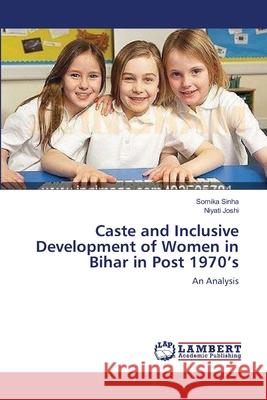Caste and Inclusive Development of Women in Bihar in Post 1970's » książka
Caste and Inclusive Development of Women in Bihar in Post 1970's
ISBN-13: 9783659133848 / Angielski / Miękka / 2012 / 60 str.
Caste is central to the social structure in India. It is a social group having racial origin and placed in hierarchical order. The hierarchy and social oppression of confining people to social boundaries of the respective caste groups to perform defined roles and enjoy prescribed status in society persisted throughout the Indian history despite a degree of mobility and assimilation. Social and religious movements contributed to weaken the oppressive character of the caste system but they failed to abolish it. The commitment in the Indian Constitution to promote equality and pursue concrete measures has made some dent but the institution has not been annihilated. The anti-caste struggles in Indias politics of democratic transformation in the recent decades have raised a number of significant issues. One such issue is the role of caste as a social barrier for inclusive development of women.This work analyzes the caste configuration of womens movement in Bihar since 1970s to explore this issue and concludes that the caste system is so deeply entrenched in Bihar that the attempt to do away with it is a difficult endeavour.











